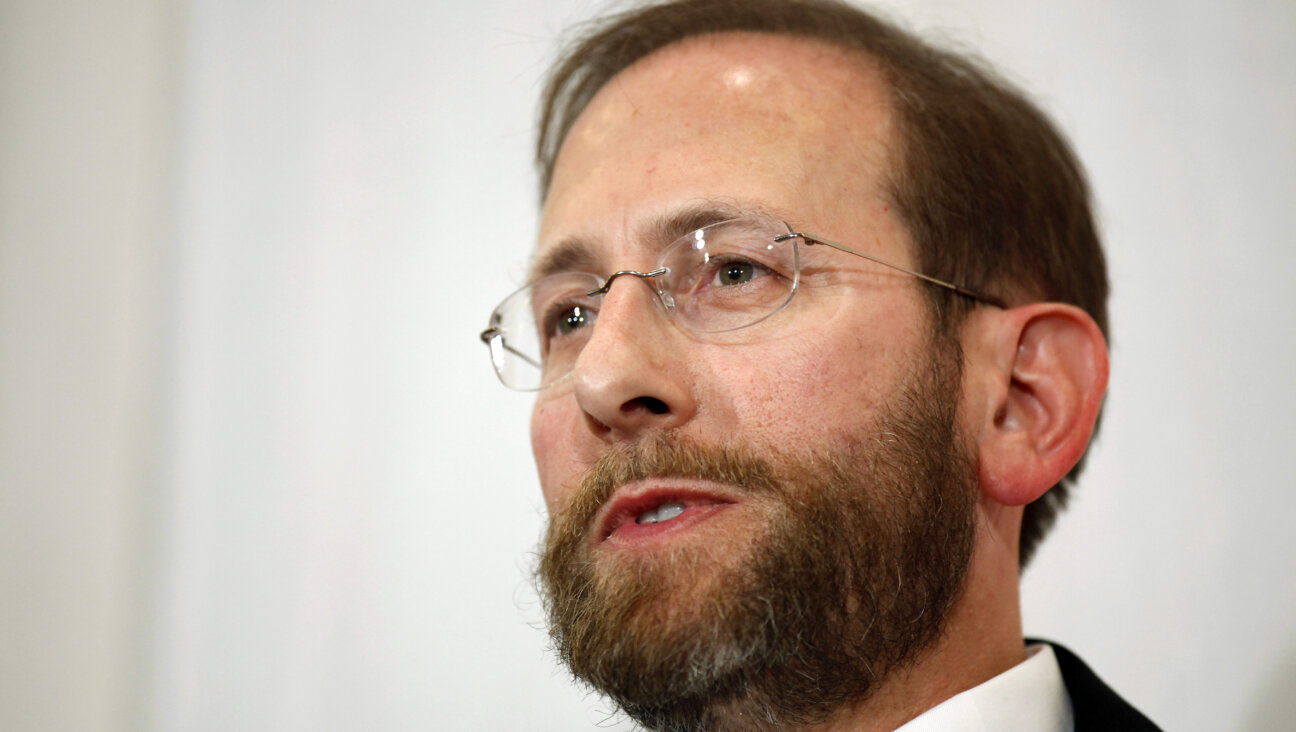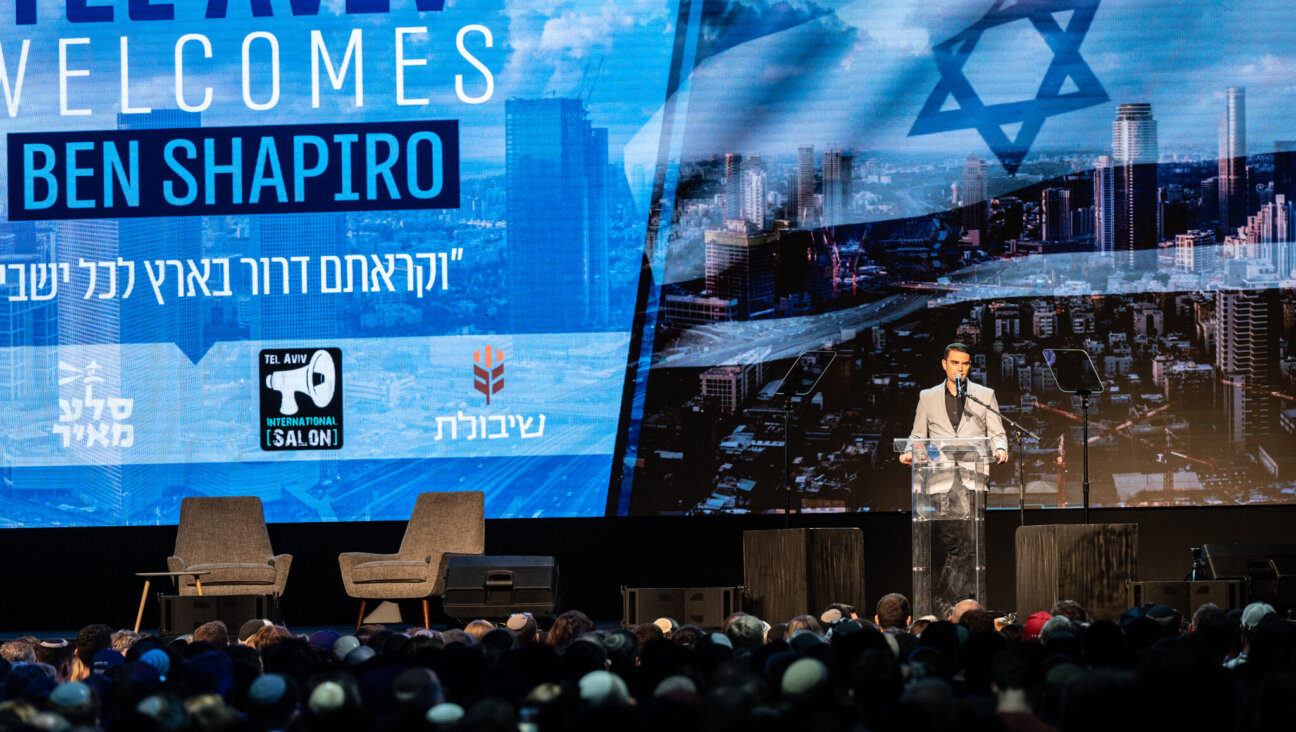Saudis Courted for Proposed Mideast Summit
Washington – As the Bush administration begins pushing aggressively for a new Middle East peace conference this fall, there is already a significant gap among Arab, Israeli and American diplomats about what the conference should attempt to achieve.
The United States has promised Israel that the proposed meeting will not serve as an international forum for discussing a solution for the Israeli-Palestinian conflict, and that it will not be used as a launching point for final-status agreement talks between the two sides. But the Palestinians and the Arab League are demanding that the conference take on the core issues of the conflict and not limit itself to discussions on economic measures aimed at the strengthening of the Palestinian Authority.
“We should not allow the economic dimension to be the tree that hides the forest,” said Ambassador Afif Safieh, head of the primary Palestinian mission in Washington.
Laying of the groundwork for the international meeting — the word “conference” is not being used by the Bush administration, due to Israeli discomfort — commenced this week during a trip to the region by Secretary of State Condoleezza Rice and Defense Secretary Robert Gates. Rice, who focused most of her talks on getting regional players to cooperate on the issue of Iraq, listened to the different expectations that Arab and Israeli leaders have for the international meeting.
“It’s too early to talk about details of the meeting,” a State Department official told the Forward, speaking on condition of anonymity. “There is no agenda yet and no timeline.”
The wildcard in preparations for the meeting is Saudi Arabia, whose participation would be seen by Israel as a major step toward regional recognition of Israel and as a possible incentive for engagement in final-status talks.
The Saudis have rejected American attempts in the past eight months to arrange a high-level meeting with Israeli leaders, and also refused to show public support for Palestinian president Mahmoud Abbas after his political faction was routed in Gaza.
A first sign of a possible Saudi change of mind came this past Tuesday, when Saudi Foreign Minister Saud Al-Faisal told Rice and Gates that his country intends to attend the international forum. “When we get an invitation from the minister [Rice] to attend, when this takes place, we will discuss it and we will make sure that we attend,” Al- Faisal said. The Saudis, however, did not specify their demands for the conference.
This week, the administration inserted a new factor into the Saudi dilemma by announcing a $20 billion arms deal for Saudi Arabia and other Gulf states. The proposed increase in arms to American-friendly Arabian countries was accompanied by a proposed boost in military aide for Israel and is intended to strengthen Saudi Arabia in the face of the emerging Iranian threat. The deal received an initial nod of approval from the Israeli government, but it is facing strong opposition led by Jewish lawmakers in Congress.
One surprise has been noted already: Syria’s foreign minister announced Tuesday that his country would be willing to attend the meeting in order to promote peace in the Middle East. The Syrian RSVP might turn out to be premature, since the Americans have yet to issue invitations and it is not clear if Syria will be on the list.
The meeting, announced by President Bush earlier this month, probably will take place next month, though an anticipated report on Iraq, along with the Jewish holidays, may lead to a postponement until October.
Israeli officials, who were in contact with the White House before Bush publicly proposed the meeting, were promised that Israel would not be faced with an international forum in which concessions by Jerusalem would be on the table. Specifically, the administration has made clear to the Israelis that the conference will not be used as a symbolic opening event for final-status talks. Senior White House officials who briefed Jewish leaders on the president’s speech also stressed that the administration will not allow the meeting to become a forum for negotiating the future of the Israeli-Palestinian conflict.
The Arab side, on the other hand, would like the international event to have as much substance as possible. “The most important [questions are], ‘What are we negotiating about?’” an Arab diplomat in Washington said.
In his speech, President Bush spoke separately about a couple of final-status issues — such as Palestinian refugees and the division of Jerusalem — stemming from the larger questions surrounding Israeli and Palestinian territory and the borders of the future Palestinian state. The Arab diplomat said that this sort of separation would be a nonstarter.
“We need to talk about all elements of the final-status agreement, because that is where the tradeoffs are,” he said.
The Arab League already announced that an international conference should be sponsored by the United Nations or the broader international community, not solely by the United States.
David Makovsky, a senior fellow at the Washington Institute for Near East Policy, said that the administration itself is far from knowing the parameters of the international meeting.
“The U.S. does not yet have an overarching plan,” Makovsky said, adding that the vague timeline set by the president could be used for delaying the event until agreement with both sides is reached.
The Forward is free to read, but it isn’t free to produce

I hope you appreciated this article. Before you go, I’d like to ask you to please support the Forward.
Now more than ever, American Jews need independent news they can trust, with reporting driven by truth, not ideology. We serve you, not any ideological agenda.
At a time when other newsrooms are closing or cutting back, the Forward has removed its paywall and invested additional resources to report on the ground from Israel and around the U.S. on the impact of the war, rising antisemitism and polarized discourse.
This is a great time to support independent Jewish journalism you rely on. Make a Passover gift today!
— Rachel Fishman Feddersen, Publisher and CEO
Make a Passover Gift Today!
Most Popular
- 1

News Student protesters being deported are not ‘martyrs and heroes,’ says former antisemitism envoy
- 2

News Who is Alan Garber, the Jewish Harvard president who stood up to Trump over antisemitism?
- 3

Fast Forward Suspected arsonist intended to beat Gov. Josh Shapiro with a sledgehammer, investigators say
- 4

Opinion What Jewish university presidents say: Trump is exploiting campus antisemitism, not fighting it
In Case You Missed It
-

Fast Forward Harvard president: As a Jew, ‘I know very well’ that concerns about antisemitism are valid
-

Fast Forward Ben Shapiro, Emily Damari among torch lighters for Israel’s Independence Day ceremony
-

Fast Forward Larry David’s ‘My Dinner with Adolf’ essay skewers Bill Maher’s meeting with Trump
-

Sports Israeli mom ‘made it easy’ for new NHL player to make history
-
Shop the Forward Store
100% of profits support our journalism
Republish This Story
Please read before republishing
We’re happy to make this story available to republish for free, unless it originated with JTA, Haaretz or another publication (as indicated on the article) and as long as you follow our guidelines.
You must comply with the following:
- Credit the Forward
- Retain our pixel
- Preserve our canonical link in Google search
- Add a noindex tag in Google search
See our full guidelines for more information, and this guide for detail about canonical URLs.
To republish, copy the HTML by clicking on the yellow button to the right; it includes our tracking pixel, all paragraph styles and hyperlinks, the author byline and credit to the Forward. It does not include images; to avoid copyright violations, you must add them manually, following our guidelines. Please email us at [email protected], subject line “republish,” with any questions or to let us know what stories you’re picking up.















